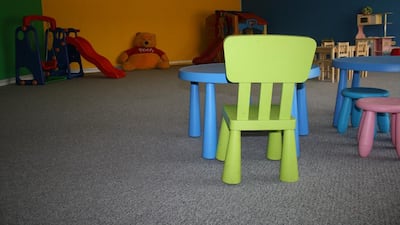Physical and sexual abuse leaves visible marks on a child’s body and can lead to psychological harm. How about psychological abuse? How much do we know about its effects and the trauma it induces?
The largest national survey on child abuse, Abuse against Children in UAE Society, revealed that psychological abuse is the most prevalent form of ill-treatment in the UAE.
According to the survey by the Dubai Foundation for Women and Children, 39 per cent of child abuse occurs in schools and 23 per cent in homes. Witnessing violence and neglect, both of which can also be classified as psychological abuse, came in at 22 and 18 per cent respectively. This brings psychological abuse to a grand total of 63 per cent of all abuse at home. That’s far more than physical abuse (22 per cent) and sexual abuse (15 per cent).
Perhaps it’s not surprising that psychological abuse significantly exceeds any other form of abuse. It can be kept well-hidden and often it is hard to detect. This makes it an especially serious problem.
The harm caused by psychological abuse is usually underestimated, not only in the UAE but around the world. Many parents don’t realise the consequences of ignoring a child, preventing them from having a normal social life or verbally assaulting them by casually belittling, shaming, ridiculing or threatening them.
Parents may behave this way for many reasons – the stress of everyday life, poor parenting skills, a lack of appropriate disciplinary techniques.
Sometimes, they may have unrealistic expectations of their children and react with psychological abuse when they fail to achieve them. Sometimes, parents who were themselves victims of psychological abuse at the hands of their parents or caregivers, do the same to their children. Breaking the cycle of abuse from one generation to the next is often very difficult.
People often think that physical and sexual abuse are far more harmful to a child than psychological or emotional abuse because they aren’t visually apparent, at least at first. Bruising and malnutrition, for instance, are obvious signs that something is wrong. But psychological abuse is hard to detect. This may be why it isn’t considered taboo in the way of physical and sexual child abuse. As a result, there is a higher level of tolerance of it.
But according to a new study published by the American Psychological Association, children who are emotionally abused and neglected face similar, and sometimes worse, mental health problems than those who are physically or sexually abused. The study defined the following as psychological abuse by a parent or caregiver: bullying, terrorising, coercive control, verbal assault and threats, humiliation, overwhelming demands, shunning and/or isolation.
The hidden scars of this type of abuse can manifest in numerous ways, including insecurity, low self-esteem, poor development of basic skills, difficulty forming relationships, withdrawal, destructive and harmful behaviour (such as pyromania and cruelty to animals), alcohol or drug abuse, and in extreme cases, suicide.
Policymakers and health and education authorities need to take note of the results of the Abuse against Children in the UAE survey. First, efforts should be made to raise awareness about the tremendous amount of harm that psychological abuse can do to our children.
Awareness campaigns, such as “Weapon of Choice”, an international public-service campaign by US photographer Rich Johnson, can help change attitudes. Johnson took a series of pictures showing victims physically scarred by the words used against them to demonstrate the extent of harm that can be caused by verbal abuse.
Last but not least, psychological abuse should be an essential part of prevention programmes in schools. We must never assume that psychological scars are less harmful than physical ones. It’s time that society changes its attitude to a deeply painful and hidden shame.
aalmazrouei@thenational.ae
On Twitter: @AyeshaAlmazroui

